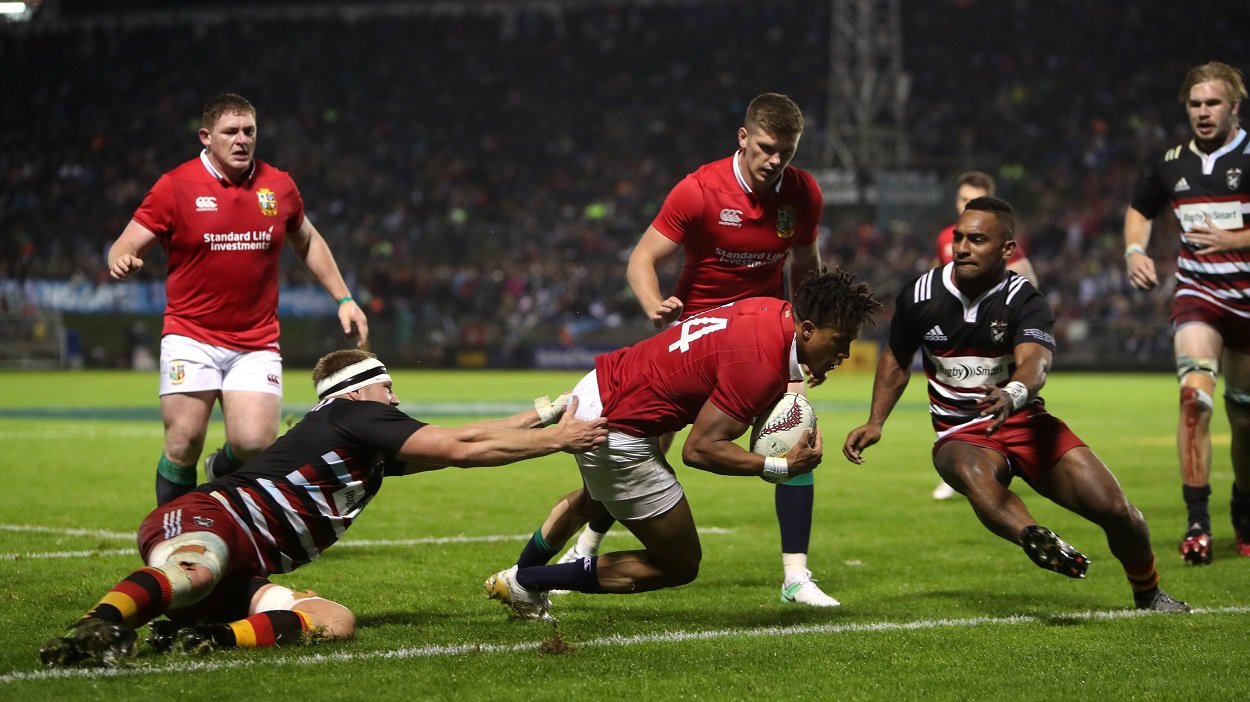Lions' pre-season is over

The Lions victory in the opening match of their tour was hardly convincing. But it’s too early to write them off, writes James Harrington
In performance terms, the Lions’ opening match at Whangarei could be tried in a UK court for treason. A quick glance at reports from New Zealand suggests a strong argument could be made that it gave succour to the enemy.
The best anyone could say about the Lions is that they played like a random selection of blokes who had first met about four days previously and had recently dragged their sorry, knackered asses off a 27-hour flight from London.
They lacked … well … much of what a professional team needs to play a game of rugby. There’s no wonder a smattering of tour obituaries have already been published. The fact that some have tempered their vitriol for the moment is down to one fact alone: the Lions won. Just. Never mind that their victory was about as convincing as Donald Trump’s presidency. They won.
There were a few positives. Taulupe Faletau, Ben Te’o and Kyle Sinckler all had decent starts in a team for whom the term ‘misfiring’ would have been a step up.
Their ‘D’, as skipper Sam Warburton noted immediately after the match, stood up to the New Zealand Provincial Barbarians. Coach Warren Gatland also pointed out that they crossed their semi-pro opponents’ line four more times than the scoreline suggests. They merely lacked the ability to put the ball down on the grass in the in-goal area.
There were more rather more negatives. The Lions played like zombies. Jonny Sexton had a nightmare. Iain Henderson horlicksed the start. Stuart Hogg butchered a two-on-one. Greig Laidlaw missed a gap so large it had developed mass. And that was just the first half. Anthony Watson’s try and some impact off the bench apart, the second period was not much better.
The inconvenient truth is that the result was almost the exact opposite of the marker the Lions hoped – were expected – to put down against a scratch team pulled together from New Zealand’s ITM Cup competition.
It was not the performance of a professional touring side. And that’s a problem right there.
[rugbypass-ad-banner id=”1473306980″]
The Lions, like the Barbarians, are a wormhole to rugby’s romantic remembrance of its amateur past. Unlike the Barbarians, however, they are actually expected to win some games, if not necessarily Test series.
Twelve years ago, some eight years after professionalism engulfed rugby, Clive Woodward tried to create the first fully professional Lions tour. And we all know what happened then. Even the man himself has, belatedly, admitted things weren’t Quite Right.
The 2017 Lions have even less time than Woodward’s Lions. They set off on tour less than 48 hours after two domestic seasons ended – and landed, 27 hours later, less than 80 hours before the first tour match against the New Zealand Barbarians kicked off.
Late-season club commitments meant there were only 14 players at Warren Gatland’s first training camp in Wales; 30 a week later in Ireland; and the total squad of 41 were together only twice before gathering at Heathrow for the flight – the ‘Messy Monday’ kitting out session and the get-together for the sponsor-required farewell dinner the day before take-off.
The matchday 23 for the weekend’s tour opener virtually picked itself from the players who were available to Gatland for about as long as the Provincial Barbarians squad, and who had rather more commitments than their opponents.
Ian Jones is right. In an interview with the BBC, he said jetlag is an excuse once. Players, management and staff knew what they were getting into, and accepted they could deal with it. The Lions have insisted they will be better for the first midweek match of the tour against the Blues. They’ll have to be.
You should expect to see, then, more accuracy, better communication between players, a functioning scrum. What you won’t see is an expansive gameplan. That’s not the Lions’ way. It can’t be.
The best Gatland can do is keep his gameplan simple. The playbook for the 2005 tour was, by all accounts, a monster. It was impossible to comprehend, let alone learn. The players need to be perfectly drilled and absolutely clear about a few key principles.
The coach’s only challenge is bringing players together. They don’t need to know the far end of a fart about which way to go if the 12 runs a certain line when the scrum-half picks the ball from the back of a scrum and the fullback’s dancing a jig on the 10m line.
They do need to know how to work together. Most importantly, they need to be excited about playing for the Lions.
If Gatland gets that right, this tour is not quite as over as many may believe. Pre-season, however, is over.
















































